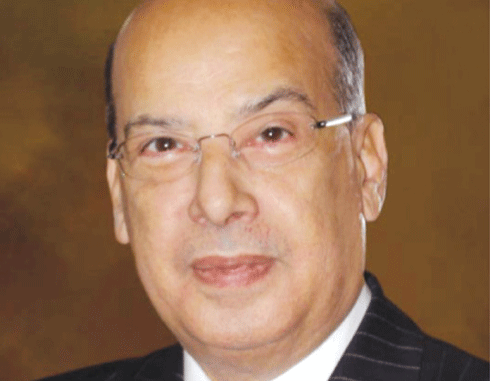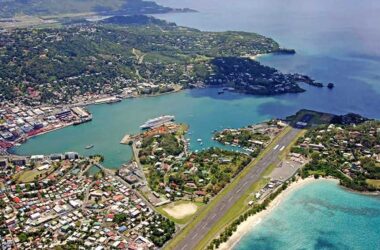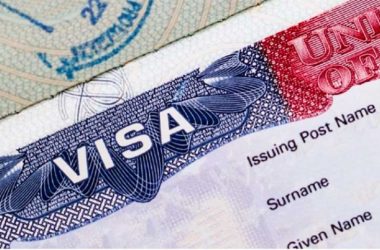A Painting Gift For Whom?
TOMAS Regalado, the Mayor of Miami – long a hot bed for Cuban exiles – has described as a “parting gift” the decision of the waning Obama administration to end the U.S. ‘wet foot-dry foot’ policy toward Cubans seeking entry to the US. The question is: a parting gift to whom?
President Obama announced the decision on January 11 in a three-paragraph statement on Cuban Immigration Policy.
Regalado believes the decision is a parting gift to Raul Castro, the Cuban President, with whom Barack Obama worked last year to establish diplomatic relations between their two countries after more than five decades of tension and hostility. But, in reality, the decision is more a parting gift to the United States – one in keeping with the policies on immigration that President-elect Donald Trump pledged, during the Presidential election campaign, to put in place.
The gift to the US is that it will no longer be taking in, without question, any number or type of Cubans who manage to land on U.S. soil. Over the years since 1995, when President Bill Clinton put the ‘wet foot-dry’ policy in place, hundreds of thousands of Cubans have jumped into anything that could float in order to reach US shores in the certainty that once they got there, they would become U.S. citizens within a year. That persistent migration of a large number of people has put a strain on the U.S. to absorb them.
The strain was worse before Clinton established the policy. Prior to 1995, Cubans on boats at sea were picked-up by American vessels and carried to the U.S. where they were immediately given residence. In the previous year, over 35,000 Cubans were taken off rafts and brought to U.S. shores. It was in response to that strain that Clinton introduced the policy that stopped automatic entry for Cubans who did not actually reach U.S. soil.
In four years since October 2012, more than 118,000 Cubans landed at ports of entry along the U.S. border. During the 2016 budget year, which ended in September, Homeland Security reports that more than 41,500 people came through the southern border. Another 7,000-people arrived between October and November.
And, it is not the U.S. alone for whom this migration caused problems. In recent months Cubans trying to get to the U.S. have travelled through at least eight countries – Ecuador, Colombia, Panama, Costa Rica, Nicaragua, Honduras, Guatemala and Mexico. These countries have been under pressure to handle the migrants gathered at their borders. If the decision to end the ‘wet foot-dry foot’ policy is a “parting gift” by Obama, it is far more a gift to the US and the beleaguered countries struggling to cope with the migrants than it is to Raul Castro.
The U.S. will no longer have to deal with the arrival of unpredictable numbers of Cuban immigrants who turn up with full entitlement to the benefits of residence and citizenship paid for by U.S. taxpayers.
In the case of Castro, his government will now have to manage a population whose needs have to be satisfied. The ease on the government’s resources that was provided by those who left for the U.S is no more. This is hardly a ‘parting gift’ to Castro; it is more in the nature of a poisoned chalice.
It is true that the Cuban government has complained repeatedly that the ‘wet foot-dry-foot’ policy has encouraged gifted professionals to leave, depriving the country of their skills, but is also true that many who left were unskilled labourers.
More tellingly for the Castro government is that the end of the policy will remove the embarrassment of people risking their lives to leave Cuba – a blot on the reputation of the government which rightly boasts that it has an enviable record in education and health. Not surprisingly, simultaneously with President Obama’s announcement, the Cuban government also proclaimed the policy change calling it “an important step” in resolving illegal migration and bringing to an end “special treatment” for those fleeing illegally.
Cuban detractors in the U.S. – more particularly the Cuban-American community – claim that Cubans seek to flee Cuba because of political oppression and persecution. In fact, while that claim might apply to some politically active persons, the reality is that, like many other refugees from around the world, Cubans have been leaving to find better economic opportunities. And, the U.S. has offered itself as a magnet for such opportunities ever since it started the economic embargo on Cuba. Indeed, had it not been for the five-decade long embargo, Cuba might have been better developed today and its economy much stronger. With a stronger economy – integrated into the global network and having to respond to the demands of liberalisation and competition – the tight political hold on the country might have loosened.
In any event, the end of the ‘wet foot-dry foot’ policy is a further step in the normalisation of relations between the US and Cuba. That is a good thing for both countries, notwithstanding the anger and rancour that will be loudly vocalised in the coming days and weeks by the Cuban-American community. It is also a good thing for the Caribbean region which would benefit from the easing of tension between the US and Cuba and the economic opportunities that could flow from it.
Responses and previous commentaries: www.sirronaldsanders.com. (The writer is Antigua and Barbuda’s Ambassador to the United States and the OAS. He is also a Senior Fellow at the Institute of Commonwealth Studies, University of London and at Massey College in the University of Toronto. The views expressed are his own)















